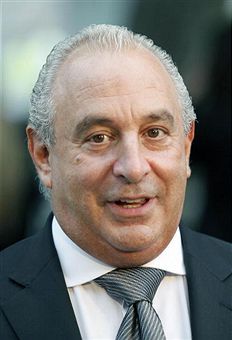 Philip Green’s business background is writ plain across his review of government waste – right down to its PowerPoint style layout. Many of its recommendations reduce down
to a claim made on p.20: “There is no reason why the thinking in the public sector needs to be different from the private sector.” And so we read a suggestion that departments halve the
number of hotel visits by using video-conferencing. There are passages on how to get the best deals for mobile phone contracts and printer cartridges, too.
Philip Green’s business background is writ plain across his review of government waste – right down to its PowerPoint style layout. Many of its recommendations reduce down
to a claim made on p.20: “There is no reason why the thinking in the public sector needs to be different from the private sector.” And so we read a suggestion that departments halve the
number of hotel visits by using video-conferencing. There are passages on how to get the best deals for mobile phone contracts and printer cartridges, too.
This isn’t to trivialise the report. Far from it. Many of its findings are of the I-can’t-believe-government-operates-like-that variety – and Green extrapolates from there to make sensible points about how Whitehall can function better. I was struck, for instance, by his observation that “data is inconsistent and hard to get at, making it impossible to buy efficiently.” As Neil O’Brien and I said in an article at the beginning of the year, this is something that has frustrated many a policymaker over recent months. After all, how can you cut spending when you can’t find out how much is being spent, and where?
Much of this, I suppose, will be submerged by a low-level political battle. Labour are already saying that they won’t take advice on fixing the public finances from a billionaire like Green. But there’s a more important issue here than the tax affairs of one man: whether any of this will actually be implemented. As the work of Peter Gershon demonstrated, it’s one thing to identify government waste – and quite another for government to suppress it.
P.S. More from Jim Pickard and Paul Waugh.






Comments